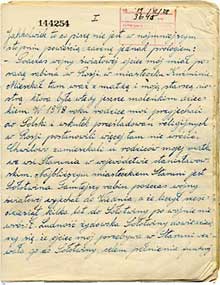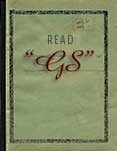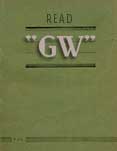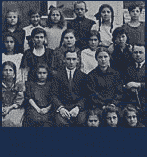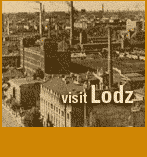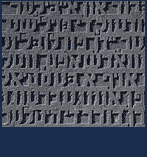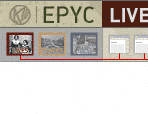

For a number of years, Eter's father informally served as the town's rabbi because the official rabbi was old and sick. When the old rabbi died, members of the Jewish community began fighting over who would succeed him.
The head of the Jewish community leadership placed an advertisement in the newspapers for a new rabbi. Papa published a notice in the papers that he had been living in K. and acting as rabbi for over ten years, and he asked that no one apply for the position here. He also sent all of his certifications to the Jewish community leaders and submitted his candidacy. It was rejected immediately.
Two distinct factions formed in our town: one was "the Rabbi's party," the other was "Haller's party." Elections were held at the end of winter. Meanwhile, various legal actions were initiated. Members of each party complained of the abuses and offenses they had suffered. Papa was also named in several lawsuits, and denunciations were lodged in as many administrative offices as possible.
Every evening people would come to our house to plan legal strategies. Our house became known as the headquarters. I devoted all my attention and energy to these cases, about which I became very knowledgeable. I knew when and how to call for appeals, repeals, and retractions, how to lodge complaints and to prepare applications and petitions. I had even memorized some of the statutes [...]
In the spring of 1936, Dr. Kanarienstein--one of the most important local political figures, whom we had looked to with great hope--became ill. He was taken to the hospital in Nadworna and died there on 30 April. The town went into mourning. At almost the same moment that Dr. Kanarienstein's body was brought back to town, the newly elected rabbi arrived from the other side of town. That day it seemed to me that I would go mad with anguish. I was drowning in tears.
The opposing party had triumphed. There was no hope left. Papa tried to make amends with the Jewish community leaders, but this didn't work. Then the last round was fired. About two weeks after Shavuoth  , Papa went to his home town of Ottynia to learn the rules of kosher slaughtering from an elderly shoykhet
, Papa went to his home town of Ottynia to learn the rules of kosher slaughtering from an elderly shoykhet  whom he knew. The day that Papa went away, my younger sister took the only money left in the house to a school carnival. My older sister worked in a store, and her wages supported the household.
whom he knew. The day that Papa went away, my younger sister took the only money left in the house to a school carnival. My older sister worked in a store, and her wages supported the household.

Our situation attracted attention. Young people, who in general aren't much attached to religion or are even anti-religious, became very friendly and helpful. Even some Catholics took an interest in us. One night the new rabbi had his windows broken. When he tried to go for a walk in the evening, he was pelted with stones.
My Father Becomes a Shoykhet
When Eter's father lost his battle to become the town rabbi, he left town to obtain training as a shoykhet, a ritual slaughterer.
[...] Papa sent word that he would return to K. the day after Tisha B'Av  . Almost the entire town waited for his bus to arrive. When Papa got off the bus people crowded around to greet him, and then they all escorted him home. Someone told me that two young women who were visiting K. at the time assumed that a great rebbe
. Almost the entire town waited for his bus to arrive. When Papa got off the bus people crowded around to greet him, and then they all escorted him home. Someone told me that two young women who were visiting K. at the time assumed that a great rebbe  had come to town.
had come to town.
Soon people began bringing their poultry to Father to have them slaughtered. This gave them as much satisfaction as pious people once got when they brought sacrificial offerings to the ancient Temple [...]
My father's work as a shoykhet  hurt the interests of the Jewish community leaders. They pressed the sheriff in Nadworna to harass my father. (The man who was sheriff at the time was later sentenced to several years in prison for fraud.) Once a policeman came and demanded to see Father's slaughtering knife. When it was shown to him, the policeman took it away. A second time, the policeman began searching for the knives himself.
hurt the interests of the Jewish community leaders. They pressed the sheriff in Nadworna to harass my father. (The man who was sheriff at the time was later sentenced to several years in prison for fraud.) Once a policeman came and demanded to see Father's slaughtering knife. When it was shown to him, the policeman took it away. A second time, the policeman began searching for the knives himself.
It was almost Rosh Hashanah  , a time when many animals are slaughtered, but this year the slaughtering had to be done in hidden locations. The sheriff issued fines to my father, and we appealed them in court.
, a time when many animals are slaughtered, but this year the slaughtering had to be done in hidden locations. The sheriff issued fines to my father, and we appealed them in court.
Before Yom Kippur  there was also much slaughtering to do. We assumed the Jewish community leaders would pressure the police to interfere, and apparently they agreed to do so. Papa would slaughter in secret locations, which he changed often, because they were repeatedly discovered. A full-fledged chase began, involving the entire police force. I stood on the street in front of our house and watched the movements of the police. Then one of them came up to me and ordered me to the police station, because I was "spying" on him. I went.
there was also much slaughtering to do. We assumed the Jewish community leaders would pressure the police to interfere, and apparently they agreed to do so. Papa would slaughter in secret locations, which he changed often, because they were repeatedly discovered. A full-fledged chase began, involving the entire police force. I stood on the street in front of our house and watched the movements of the police. Then one of them came up to me and ordered me to the police station, because I was "spying" on him. I went.
It was 7:30 in the morning. Meanwhile, Papa was being followed more and more. He fled to a nearby village, Monasterczany, and then walked to another village, Dzwiniacz, where he received wagonloads of poultry from town.
I was kept at the police station until noon. They probably expected that Papa would come to get me, and then they could detain him; I gathered this from some words I overheard from an adjoining room. When I was released, people came forward to meet me. For the first time, people were overjoyed to see me. Papa returned home at ten o'clock at night.




